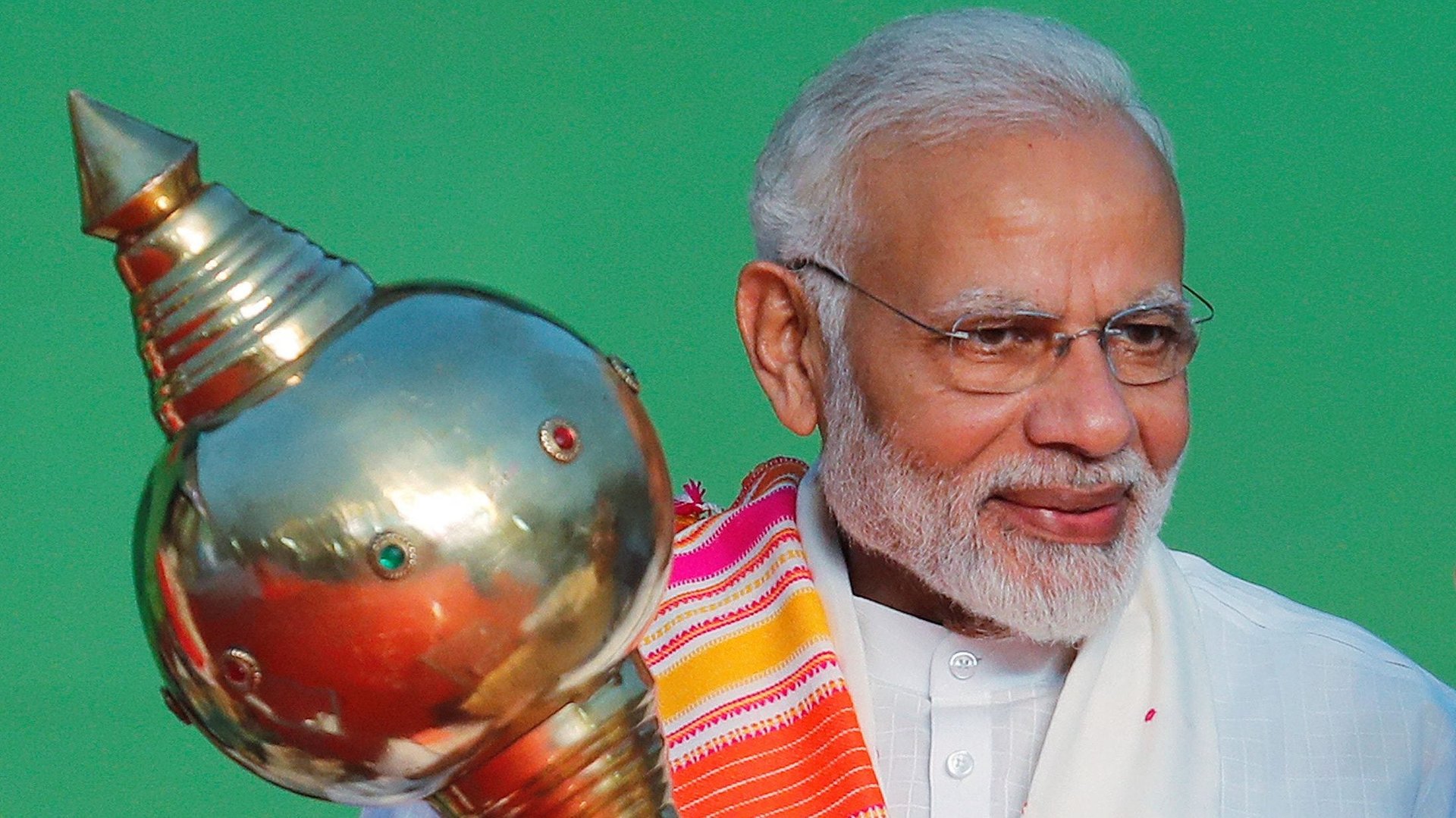Modi cracked a really good joke about blockchain—and it’s bang on
On Nov. 14, Narendra Modi, widely considered India’s most savvy prime minister, cracked a tech joke during his keynote address at the Singapore FinTech Festival:


On Nov. 14, Narendra Modi, widely considered India’s most savvy prime minister, cracked a tech joke during his keynote address at the Singapore FinTech Festival:
I have heard of an advice going around in startup circles. To increase your venture capital or VC funding by 10%, tell the investors you run a “platform,” not a regular business. If you want to increase your VC funding by 20%, tell the investors that you are operating in the “fintech space.” But, if you really want the investors to empty their pockets, tell them that you are using “blockchain.”
While he might have said that in jest, startup funding data in India proves that he is bang on.
Blockchain—the underlying distributed ledger technology for cryptocurrencies—is the flavour of the season in India. So far in 2018, startups in the sector have raised over $10 million, which is over half of the total $17.8 million that the industry got over the last five years.
The hype around the sector, however, is a mix of genuine innovators and a bunch of me-too entrepreneurs who just throw the word around, analysts said.
Even as the technology has found applications in finance, farming, and land registry in India, several young startups use the term just to grab investors’ interest when they aren’t actually using it in practice.
“Blockchain is definitely a buzzword but how many are actually implementing it? I see scores of startup pitches every week and everyone invariably has ‘Blockchain will be used from next quarter’ translated— ‘We know you like jargon and have hence put it in. We will implement blockchain as soon as we understand what the damn thing means’,” said Ankur Nigam, partner at consultancy firm KPMG.
Why, then, is blockchain still raking in the big bucks?
Herd mentality
Since the new-age startup wave arrived in India about a decade ago, following the crowd has seemed to be a safe bet. For instance, Flipkart’s success spurred hundreds of e-commerce portals, Ola inspired scores of taxi/bike aggregators, and Swiggy led several entrepreneurs to launch food delivery startups.
And why just entrepreneurs? “Investors act with a herd instinct and go after whatever is the new kid in town,” said Harish HV, an independent analyst who tracks India’s startup sector. “Funding tends to move together to particular areas based on what is new, exciting, and happening.”
The attention to a sector gets amplified when nascent investors seek inspiration from veterans. “There are first movers and there are people who have a very successful track record of investing. A lot of investors look up to these people and try and piggyback on their vision,” said KPMG’s Nigam.
But entrepreneurs can’t monetise jargon, experts say.
Buzzwords like blockchain, deep tech, big data, machine learning, artificial intelligence, computer vision, and so on are good for marketing pitches, but eventually, it all comes down to a business’s value proposition, which will lead to the industry correcting itself.
The trend will fade out “once we start seeing the demise of some companies” and “some of the companies scale up and start creating moats (entry barriers) around them making it difficult for new entrants to enter,” said Harish HV.